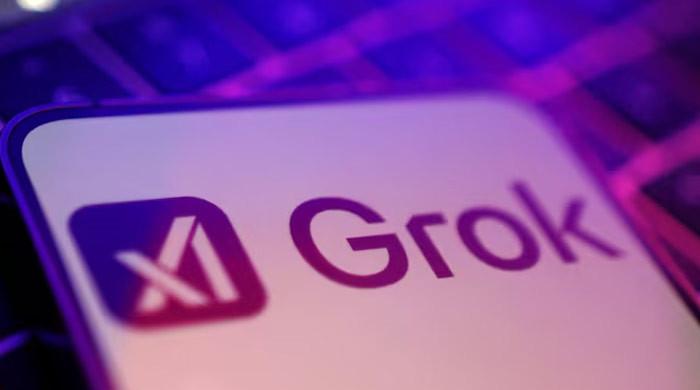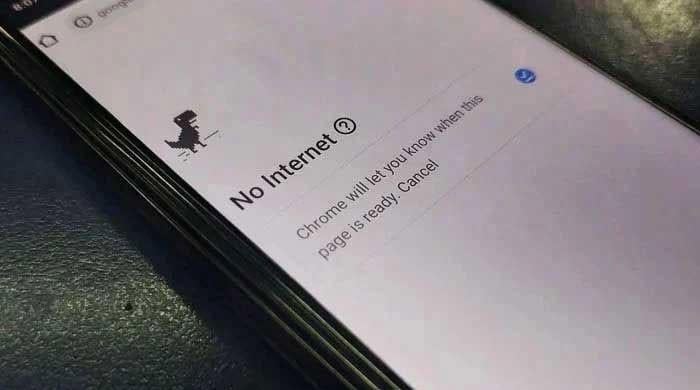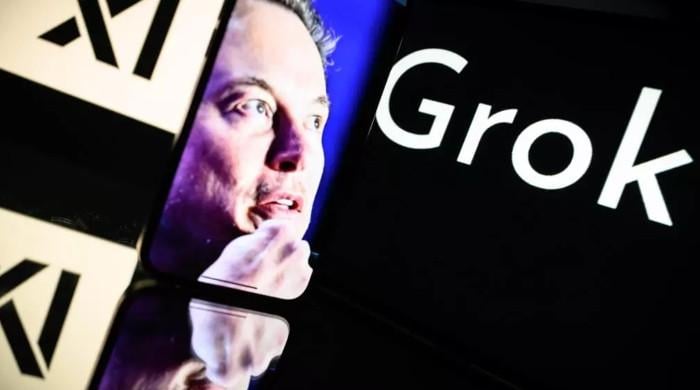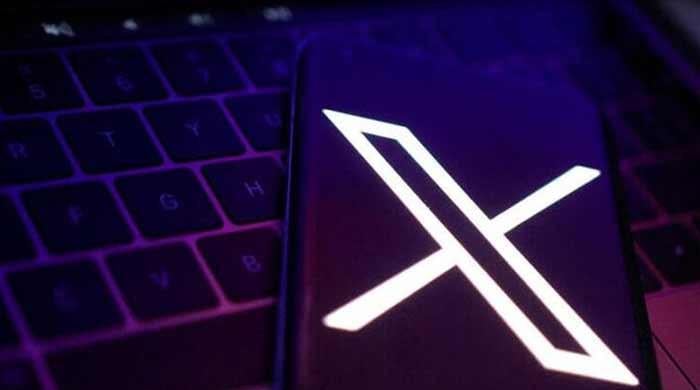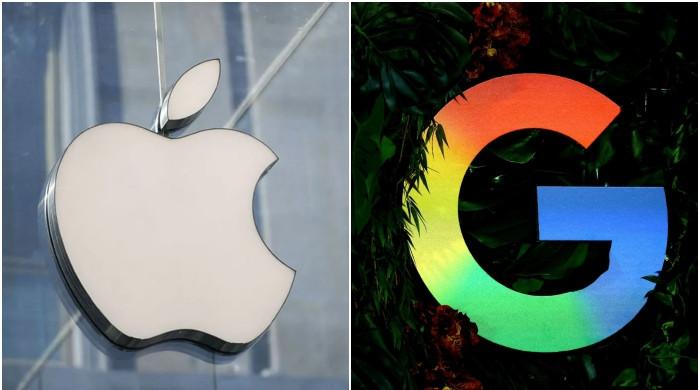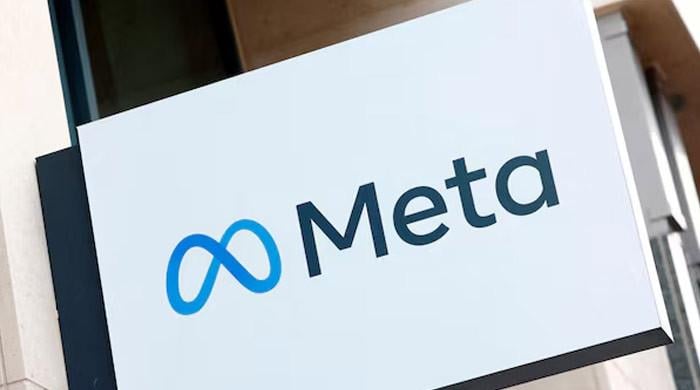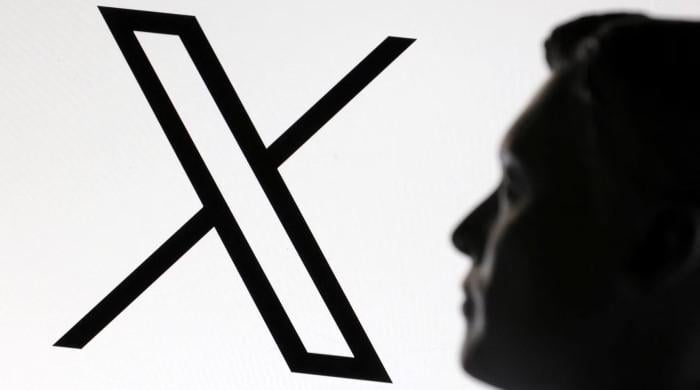Huwaei fires up battle against Apple's iPhone 11 with new Mate 30
Huawei directly challenged Apple’s new iPhone 11 with its new Mate 30 smartphone range
September 19, 2019
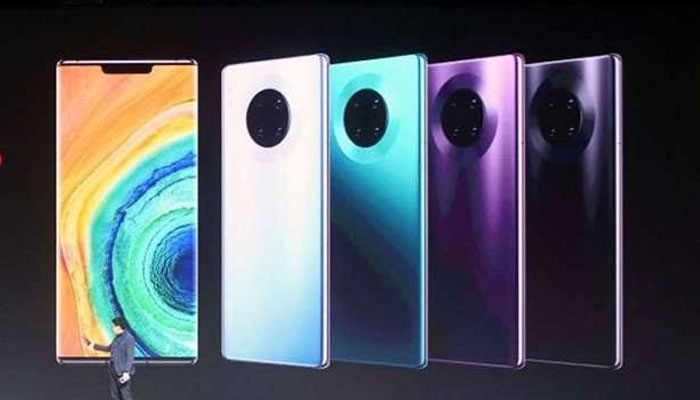
MUNICH: Chinese tech giant Huawei on Thursday directly challenged its American counterpart, Apple, by launching its new Mate 30 range against the Cupertino-based smartphone company's iPhone 11.
At a glitzy launch in the German city of Munich, the Chinese firm highlighted its own apps brand while smoothly circumventing the critical issue of Google services' access.
Huawei said its new Mate 30 Pro and Mate 30 devices were more compact, cameras superior, and the wraparound screens brighter than Apple's iPhone 11.
Top salesperson Richard Yu showcased the new models in the first such event ever since US President Donald Trump hit Huawei with an export ban back in May.
Huawei’s Mate 30 has "got a large screen but it’s very compact in your hand”, said Yu, the head of the Chinese company's consumer business. However, what remains to be seen is the new phone's fate in Europe, which depends a lot on whether the customers would stay loyal and opt for a device lacking access to software and apps supported by Google or switch brands.
Yu said the new phones would offer its own app gallery and that Huawei would spend $1 billion on incentives to promote its Mobile Services app ecosystem. The company did not say when the new phones would be shipped to Europe.
The Chinese tech giant noted that the Mate 30 would be priced at $882, the top-end Mate 30 Pro at $1,213, and the Mate 30 Pro 5G at $1,324. It also revealed a new Porsche design version, which will be priced at $2,313.
By comparison, Samsung’s Galaxy S10 5G retails at $1,299 and the iPhone 11 Pro starts at $999 but the latter lacks 5G connectivity.
Yu also showed off wearables, including the GT-2 smartwatch and the Earbuds 3 wireless headphones, which he said featured the best noise-cancellation on the market as well as smart TVs boasting artificial intelligence (AI) features.
“Despite all the concerns surrounding Huawei, and the challenges it faces, it remains defiant and prepared to soldier on,” Paolo Pescatore, a telecoms and media analyst, said.
Washington had effectively banned US firms from supplying Huawei, alleging it was a national security risk as its equipment could be used by Beijing to spy — a claim Huawei has repeatedly denied.
The No. 2 smartphone maker expects the US ban to cost it $10 billion.
Huawei’s new phone launch has been marked by uncertainty over whether buyers of the flagship Android device would be able to use apps supported by Alphabet Inc's Google.
Unboxed Delight
Holding the launch in Europe underlines the importance of the 500 million consumers in the region, where Huawei has lost 5 percent in market share owing to the US ban even as buyers rallied to its brand at home.
The Chinese giant has been running an online marketing campaign there with the slogan "Rethink Possibilities", recruiting fans to spread the word about the launch.
The Mate 30 range will run on an open-source version of Android — and not on the current version licensed from Google, a source familiar with the matter said before the launch.
The smartphones would not be able to use Google Mobile Services to operate Play Store or download apps, such as Gmail, YouTube, and Maps. Instead, Huawei intends to offer its own interface that would allow users to access some Google apps.
Yu did not directly address the Google issue in his presentation.
Without those Google features, analysts say consumers would not want go for the phone — unless Huawei could find a way to convince them that its features are unmatched and the alternative software offering is stable and easy to use.
Huawei says the phone’s "brain" — the Kirin 990 chipset unveiled at a recent tech fair in Berlin — outperforms the Qualcomm-powered 5G phones already on the market from market leader Samsung.
In particular, the "big core-tiny core" hardware configuration means it can run power-hungry AI applications and support online gaming, while saving battery on routine tasks.
“Huawei has Apple soundly beaten when it comes to form factor design but even these beautiful-looking devices are going to struggle to see any volume without the Google ecosystem,” analyst Richard Windsor said in a note before the launch.
($1=0.91)




